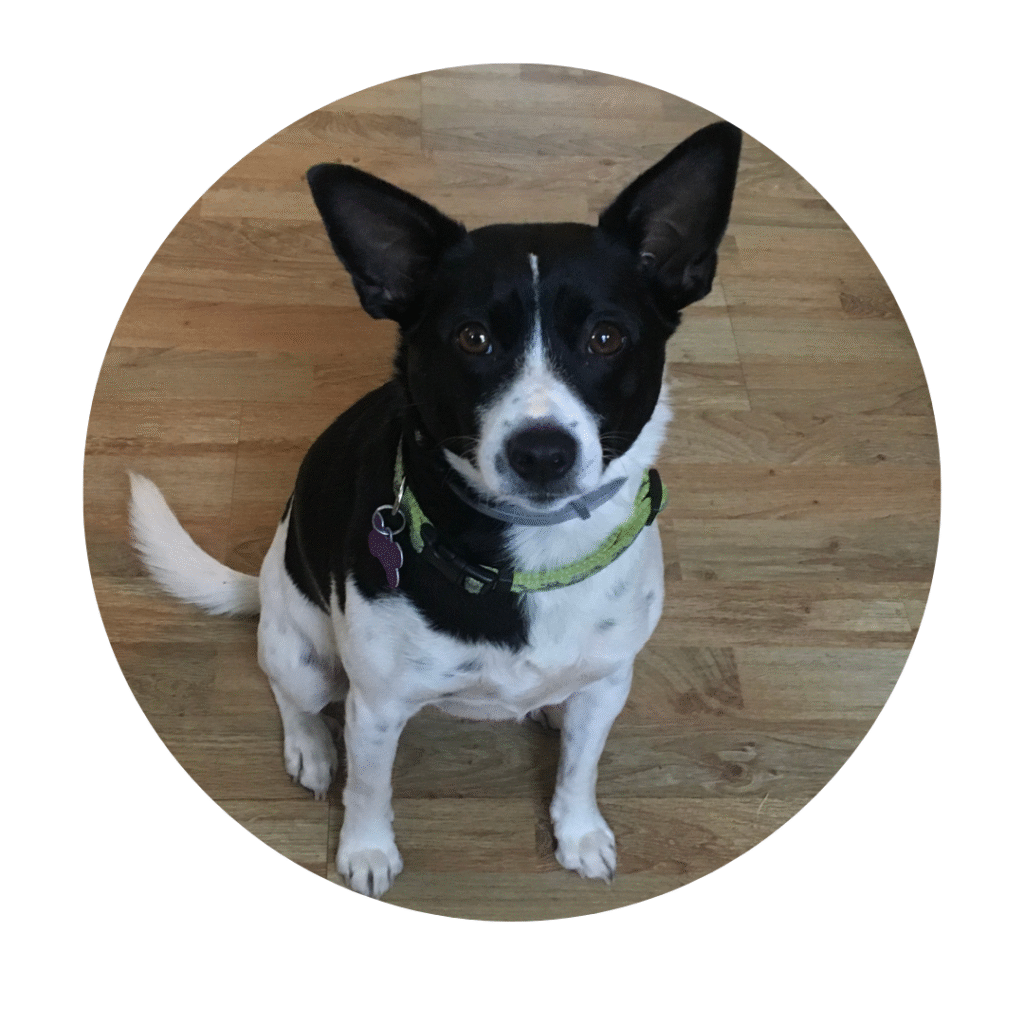Dogs know. They sense when you’re happy or sad. They sense when you’re fearful or excited. Dogs are also unconditionally loving and loyal, playful and protective. Children who have experienced significant trauma in their life can really appreciate these qualities in a canine companion.
Since its beginning, The William George Agency for Children’s Services (WGA) has had both working and companion animals, including dogs, contributing to the physical, mental and emotional support of young people on its campus. A story from the pages of a 1942 yearbook (narrated through the eyes of farm dog, Tippie) reveals there were at least seven dogs living on campus in that particular year. Dogs lived onsite as the family pets of house-parents in residential cottages back then. When the house-parent model of caregiving ended at WGA, so too did the regular presence of dogs until a formal Animal-Assisted Intervention Program (AAIP) specifically for use with canines launched in 2017.
The program known as Paws First was fashioned by Danielle Chase, LCSW, CASAC-Master, who is Director of Operations and Compliance at WGA and also a Certified Animal-Assisted Intervention Specialist and an EAGALA Certified Mental Health Professional. Chase sought to create a structured program after observing a marked difference in residents’ behavior on a few occasions when her dog accompanied her to campus. This canine-specific AAIP, which is separate from WGA’s equine AAIP, is designed to enable employees and their dogs to implement animal-assisted intervention therapies, activities, and education for youth while at WGA.
In the first phase, interested employees, their eligible dogs and youth from WGA receive weeks of hands-on training in the American Kennel Club’s Canine Good Citizen (CGC) and Trick Dog curriculum to prepare them for taking a final CGG exam. The CGC program centers on positive reinforcement-based dog training, teaching good manners to dogs and responsible dog ownership to their owners. Dogs learn basic obedience and tricks such as how to sit, stay, heel, be comfortable in crowds, be comfortable away from their owner, and be comfortable with other dogs. WGA youth dog handlers especially learn a lot about themselves during this phase. Through regular practice, youth strengthen bonds, build their confidence and independence, their self-esteem, sense of purpose, and safety awareness. Youth also learn how to care for an animal properly. The second phase entails successful completion of the CGC exam and approval of an AAIP plan in an employee’s specific work area.
Since Paws First began, there have been nine training groups resulting in 18 eligible canines to ‘work’ on campus. Tenny, for example, works with owner Ellyn Sellers-Selin, MD in the Medical Clinic (pictured above). Tenny is one of two approved dogs providing therapeutic assistance at the Clinic several days a week.
“Dogs can help form a bridge to connect with others,” says Dr. Ellyn, as she is known. “This can be especially useful with youth who have trust issues or a hard time expressing themselves. At the clinic, Tenny reads the room and picks up on body language for cues. He will happily wag his tail walking down the hall to the exam room and, after greeting the patient, may quietly play with his toys while being petted during the visit. He is a calming presence and is very aware, knowing when to be excited or quiet for what a youth needs in the moment.”
Tenny has logged 239 patient-in-room encounters so far. He’s also a favorite for walks at lunch time, with youth taking turns as his handler to and from the dining hall.
Ellie (pictured below) is another Paws First canine who spends her time with owner Jennifer Gold in one of WGA’s residences. As a Behavioral Health Clinician, Gold says she’s seen the program as helping to keep residents feeling more comfortable in stressful situations, helping youth handlers to be more responsible, and prompting youth to engage in healthier activities, like going for a walk.

“I think most every child likes animals, and dogs are very sensitive to people’s emotions. There are many residents in the cottage who use Ellie as a way of calming down. They like when she lays near them during session, and have fun giving her treats and watching her do tricks. She does bring a sense of warmth and home to most youth,” says Gold. Ellie and Gold have enjoyed the Paws First training program so much that they have gone on to become the first Paws First participants to achieve an Advanced CGG title.
“The presence of Paws First dogs on our campus has the ability to promote improved mood, motivation and physical wellbeing for youth, as well as comfort and trust,” says Helen Hulings Executive Director of The William George Agency for Children’s Services. “It’s a well-liked program that helps to open pathways to stronger connections.”
